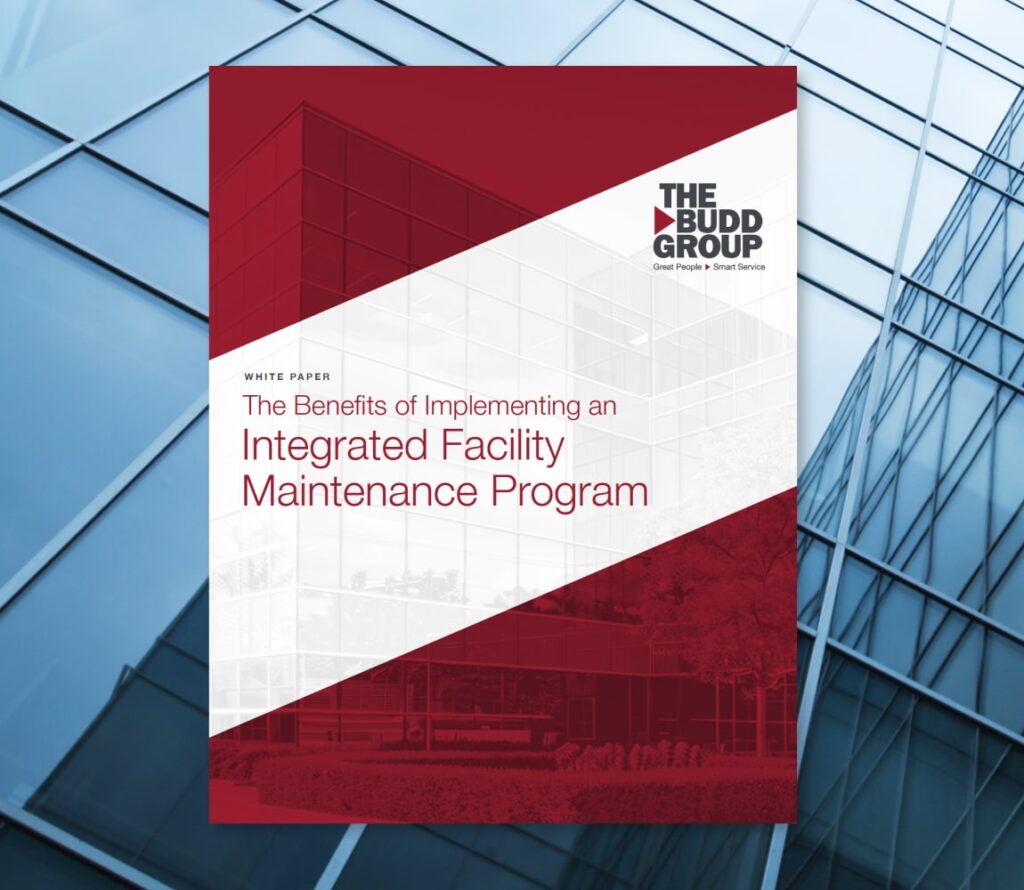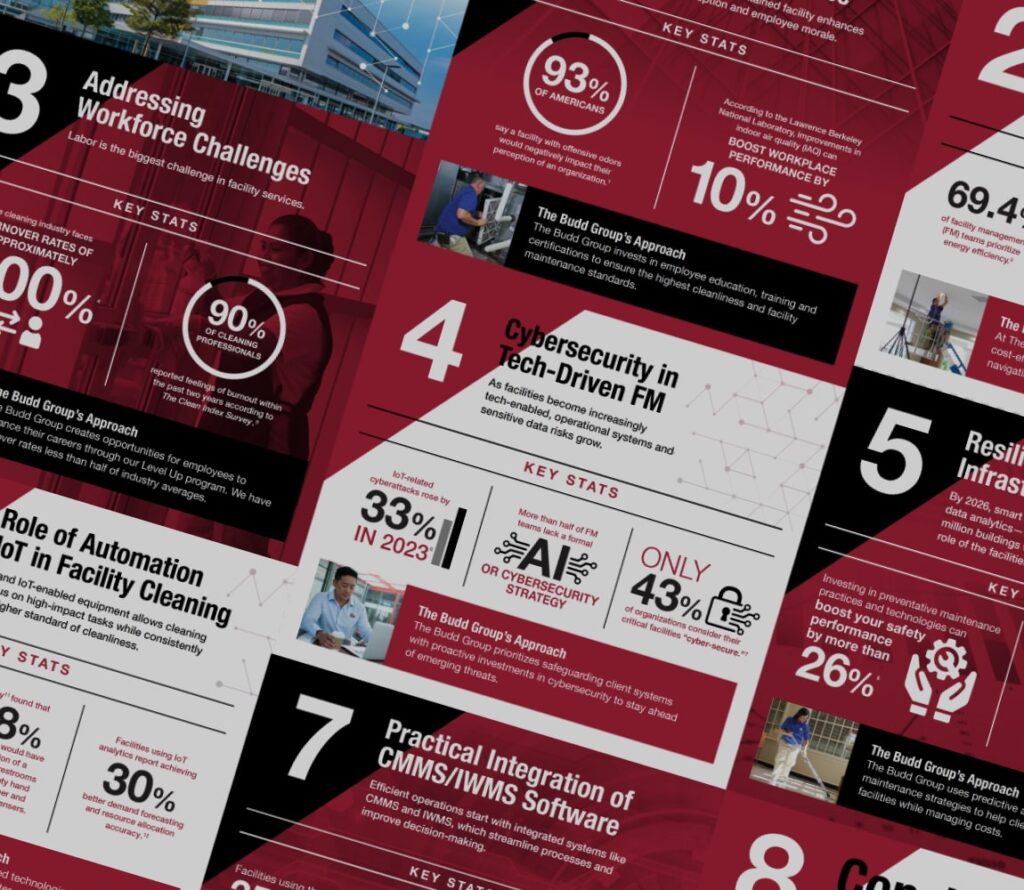Most of us look forward to the holidays, but the rest of winter can be a real drag (especially in colder climates). It’s too soon to accurately predict just how severe this cold season will be on the whole, but even mild winters will take their toll on properties. Exterior concrete surfaces are especially vulnerable to the snow and cold — despite their overall durability, these features are porous, allowing moisture to enter, freeze, and thaw within their various crevices. Without the proper preparations and maintenance, you might face a host of concrete issues during and after winter, including fracturing, spalling, pitting, staining, and more.
The concrete floors inside your building aren’t off the hook, either. If there’s snow and ice outside, you can expect a fair amount of moisture to end up inside your facility as well. Snow often carries dirt and debris with it as well, so your interior concrete floors can quickly become grimy and unappealing this time of year. So, while commercial floor care should be a priority throughout the year, it becomes even more crucial during the winter. Let’s go over some ways to approach concrete floor cleaning and maintenance this winter to protect these surfaces all season long and beyond.
Get a Head Start on Concrete Floor Prep
The sooner you get started on winterizing your concrete surfaces, the better. Your first step should be to closely assess the current condition of your concrete floors. Look for signs of damage like cracks, bumps, pitting, etc. Even if the damage is minor, it’s a good idea to repair the problems you can, as this will allow you to more effectively make other important preparations. Plus, leaving your concrete floors in poor condition will only exacerbate the negative effects winter can have on them. In most cases, your main task will be to seal cracks with a durable product — you can do this on your own, though larger cracks (i.e., larger than a quarter-inch) should be repaired by professionals.
Consider Resurfacing Concrete Features
After you’ve gotten your commercial concrete flooring in decent shape, you’ll have the option of resurfacing or resealing it for additional protection. There are many materials and methods for sealing your newly repaired concrete surfaces, and some will be better suited for your unique situation. For instance, a simple transparent acrylic sealer can be quickly applied while providing your floor with a bright, shiny finish. If you’re looking to not only protect your floors from bad weather but alter their appearance, you might opt for a tinted epoxy coating instead. Concrete polishing is another popular technique for commercial and industrial settings, grinding down floors and applying a concrete densifier for a dust-resistant, glossy, durable finish. Whatever the case, going the extra mile and resurfacing your concrete floors will protect them from moisture intrusion and other threats to their longevity and aesthetic appeal.
Keep Up with Concrete Floor Cleaning
The worse the weather gets, the more effort is required to keep concrete floors clean and protected. If you already have a floor cleaning schedule in place, you may want to adjust it accordingly, increasing the frequency of regular cleaning duties (i.e., mopping, sweeping, vacuuming), investing in additional commercial floor cleaner solutions, and so on. There’s no one-size-fits-all cleaning program for concrete floors — the details depend on your facility’s traffic level, the condition of your floors, and more. That said, every facility must develop an optimized plan for its particular floor cleaning needs and stick to it.
Get Those De-Icing Agents Ready for Outdoor Surfaces
As previously mentioned, the condition of your outdoor surfaces has a major impact on what happens to your interior flooring. So, in order to keep up with commercial floor maintenance this season, it only makes sense to take care of your exterior surfaces, too. Snow and ice are the major threats you’ll face during winter, so it’s imperative to combat these forces to the best of your ability. De-icing materials are invaluable tools in this effort, but note that certain chemicals can deteriorate your surfaces. Make sure you use de-icing agents that won’t corrode concrete or take too much of a toll on the environment. Not only will reducing ice on your property limit the amount of moisture that gets tracked inside — it will also keep your employees, guests, and customers safer as they traverse your parking lots, driveways, and walkways.
Don’t Let Snow Overwhelm Your Property
Snow removal is crucial, too. After all, much of the ice that ends up on your property is a result of snow melting then freezing again. By regularly clearing snow from your outdoor surfaces, you limit the amount of ice that forms in the first place, all while protecting your surfaces from further deterioration. If you’re overseeing a larger property, it’s prudent to hire snow plowing services, as it can become otherwise impossible to keep up with regular snowfall without outsourcing this crucial task.
Work with Knowledgeable Commercial Flooring Contractors
The best thing you can do for your concrete floors this season (and year-round) is partner with reliable floor care experts. Not only can these contractors offer invaluable advice regarding winterization, cleaning, and maintenance — they can also provide your facility with the necessary resources and services to ensure that these tasks are handled properly. At The Budd Group, we offer commercial floor cleaning services, custom floor care consulting, daily and periodic floor care, repair work, resurfacing, stripping & waxing, and so much more. Our offerings extend beyond floor care as well. If you’re looking for help with snow removal, general cleaning, facility support, or a number of other speciality services, we have you covered.
To learn more about our services and values, give us a call today at 800-221-8158!

